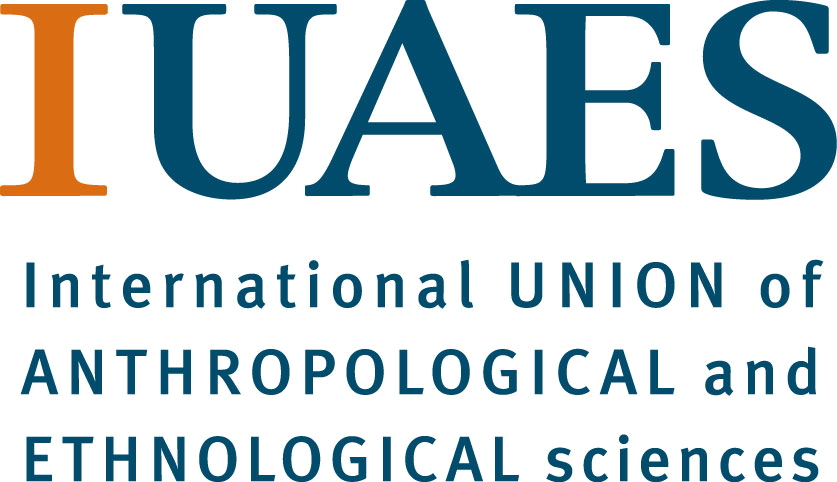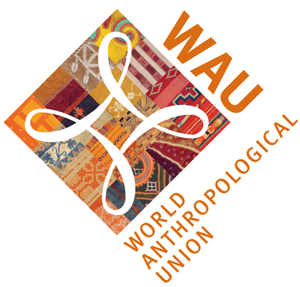The IUAES
The International Union of Anthropological a`nd Ethnological Sciences (IUAES) is the contemporary of a genealogy of strong organizations. Its ancestor, the International Congress of Anthropology and Pre-Historical Archaeology, was founded in 1865. In 1934 it split, giving rise to the International Congress of Anthropological and Ethnological Sciences (ICAES). In the traumatic era following the Second World War, the United Nations Educational, Scientific, and Cultural organization (UNESCO) sought intellectual and cultural transformation towards a more peaceful, tolerant and cohesive world. In order to strengthen the actions in the field of culture and social sciences, in particular anthropology, the International Union of Anthropological and Ethnological Sciences (IUAES) was founded in 1948, which continues to fulfill this mission through its efforts and achievements. The present organization is the outcome of the amalgamation of the ICAES and the IUAES in 1968, then known simply as ICAES, and the congresses were renamed as IUAES World Congresses in 2008. The Congresses have been globally held since 1934, a full list of congresses can be viewed here.
As ICAES, the organization's main goal was to broaden the vision and the concept of anthropological knowledge to be inclusive of all parts of the globe, in an effort to divest it of its colonial and largely western origin. The contribution of many remarkable anthropologists cannot be overlooked in this regard. After the very successful ICAES in Chicago organized by Sol Tax in 1973, which resulted in the publication of the World Anthropology Series by Mouton, Lalita Prasad Vidyarthi of India, among others, contributed towards the consolidation of the discipline in his native country. He organized the 1978 Congress in New Delhi, a landmark event that brought together anthropologists from several different countries. Notably, it also led to greater recognition of anthropologists from across the world, who also contributed with articles in the Mouton series.
Through its historical trajectory, the ICAES and the IUAES developed a diverse and representative character that has encouraged the participation of many scholars from different parts of the world. Lourdes Arizpe, who was the first woman president of ICAES, organized the congress in Mexico City in 1993. Mario Zamora, an anthropologist from the Philippines, with work both in his country and India, also deserves mention as someone who made the IUAES an inclusive space for scholars. The 1998 Congress held in Virginia, USA, was a fruit of his efforts that he unfortunately did not live to see.
From the 1978 Congress, the idea of smaller and more regionally dispersed Inter-Congresses was also mooted and since then several Inter-Congresses have been organized in different countries. The geographical dispersion has been particularly useful in stretching the horizons of participation to include scholars globally.
At the 2009 World Congress in Kunming (China), the IUAES increased its effort to be more democratic and participatory. The Permanent Council was disbanded in 2012 to give more power to the General Assembly, the Executive Committee was simplified and there was a reduction in the number of its members. The second woman to become president of the organization was Faye V. Harrison in 2013. Her contributions have made a significant difference to the globalization of the IUAES.
During the 2018 World Congress in Florianopolis, Brazil, the IUAES joined the WCAA (World Council of Anthropological Associations) in a jointly led bicameral organization named the World Anthropological Union (WAU). The WAU enables anthropologists across the globe to present a unified front for action. Anthropologists are represented in the chambers of the WAU in two ways: they are individual members of the IUAES and members of the anthropological associations that form the WCAA. The bicameral structure facilitates both unity and autonomy, allowing the leadership of these organizations to take joint decisions on important issues.
The current IUAES President Junji Koizumi is poised to achieve the academic goals that have marked the organization´s journey into the twenty-first century. He is ably supported by the current Secretary-General, Noel B. Salazar, and a duly elected executive.
The World Congresses and Inter-Congresses have become forums for attracting anthropologists, ethnologists and others from cognate disciplines from all over the world. Indeed, a very significant goal of the IUAES is to provide opportunities for collaboration and interaction between researchers from a wide section of the globe to enable cross-fertilization between the many anthropologies that are practiced. It is an active community that straightforwardly confronts the dual threats of, on the one hand, epistemological hegemony in the discipline and, on the other, co-optation of perspectives and insights developed in the global periphery by academic institutions in the global metropolis.
IUAES nominates Honorary IUAES Members by giving awards for their distinguished service to the organization and their contribution in the field of anthropology. This is a part of the organization's efforts to give recognition to its members, to make the membership more rewarding, and to appreciate the untiring and selfless contribution of those who have been steering it towards greater achievement (Read more about honorary membership).
At the Manchester Congress in 2013, the Commissions were further strengthened by the formation of the Council of Commissions and by the appointment of a Chair and a Deputy Chair of the Council who also became members of the IUAES Executive Committee. Thus, the work of the Commissions is closely coordinated with the overall administration of the IUAES. As a result, the Commissions have become rejuvenated. They are also encouraged to work with each other, and it is hoped that in the future one may expect even more productivity, collaboration and expansion. Some of them have their own web sites and journals, as well as a record of convening stimulating panels at the IUAES Congresses and organizing annual meetings in different parts of the world. Many Commissions contribute to a growing number of edited volumes.
IUAES also takes its role of advocacy seriously, and on many occasions of threat to academics and to the discipline as a whole it has made written statements and sent letters of support to those in need. It has found itself deeply concerned whenever the identity of the discipline has been at stake, for example in Ireland when the organization wrote letters in support of retaining the honours degree in anthropology at the Queen's University, Belfast (2016). It also extended moral and ethical support to Canadian-Iranian anthropologist Homa Hoodfar, when she was imprisoned by the Iranian authorities (2016). Furthermore, it tried to raise help for the museum in Rio-de Janeiro, Brazil, that was destroyed by a fire (2018), and also is reaching out to many others, individuals as well as institutions.
The IUAES is a member of the International Science Council (ISC), a non-governmental organization with a global membership that comprises 40 international scientific Unions and Associations and 140 scientific organizations including national Academies and Research Councils. ISC aims at advancing science as a global public good, and it was created in 2018 as the result of a merger between the International Council of Science (ICSU) and the International Social Science Council (ISSC), thus bringing together the natural and social sciences. The IUAES as a long-term member of both ICSU and ISSC contributed to the creation of ISC with Junji Koizumi, then IUAES Secretary-General, acting as a member of ICSU/ISSC Transition Task Force (TTF) and Thomas Reuter, then IUAES Senior Vice President, working as an ISSC Executive.
IUAES is also a long-term member of the International Council for Philosophy and Human Sciences (CIPSH), a global organization for the humanities and human sciences, and current IUAES Secretary-General Noel B. Salazar serves on the CIPSH Executive Board. It is worth mentioning that in 1993 Solomon H. Katz, an IUAES member, chaired the committee that contributed to the replacement of the earlier UNESCO Statement on Race. The revised text includes the concept of "racism", in addition to race, to focus on this practice by people as well as by states and institutions. The different activities of IUAES are disseminated to its members through its biannual Newsletter and through the news circulated via social media channels and by email. The communication channels of the IUAES try their best to meet the challenge of keeping its members apprised about academic and related events across the world as well as about events and opportunities that may be of interest to them.
*Note: For those seeking further details about the history and work of the IUAES please see the article written by Harrison, Faye V (2018) International Union of Anthropological and Ethnological Sciences (IUAES), In The International Encyclopedia of Anthropology, Edited by Hilary Callan, John Wiley & Sons, Ltd. Available at a charge at: https://onlinelibrary.wiley.com

